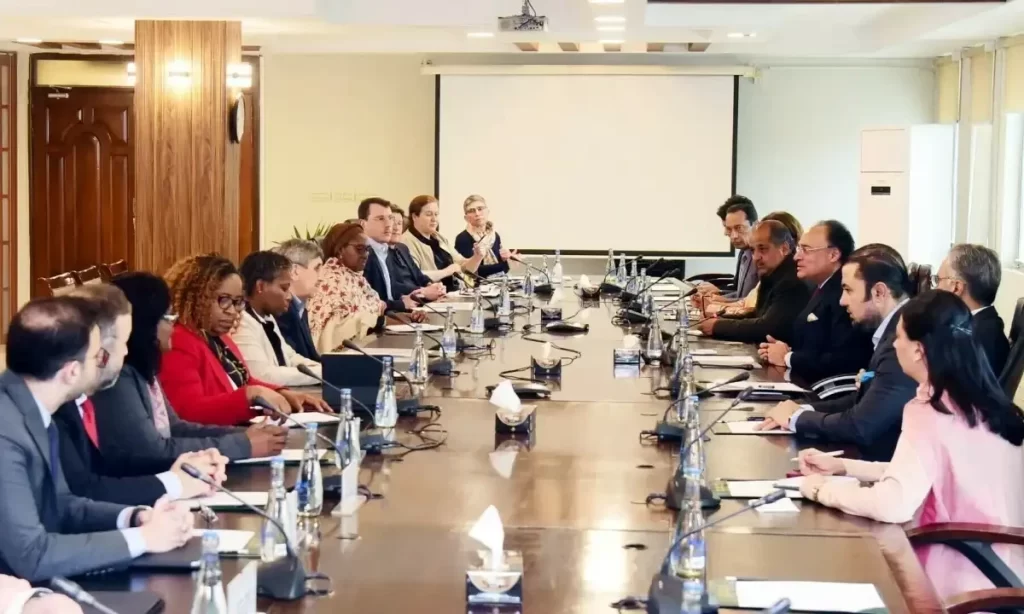Finance Minister Muhammad Aurangzeb held a significant meeting with a delegation of World Bank Executive Directors, outlining the government’s ongoing economic reforms and their positive impact on Pakistan’s financial stability.
The World Bank delegation praised Pakistan’s reform agenda, recognizing its role in improving economic indicators.
During the meeting, both sides discussed Pakistan’s economic landscape and the ongoing structural reforms.
Finance Minister Aurangzeb welcomed the delegation and appreciated the World Bank’s continued economic cooperation with Pakistan.
Long-Term Partnership and Development Goals
According to the Ministry of Finance, the discussions focused on the Country Partnership Framework (2026-35), a long-term strategy aligning Pakistan’s economic goals with global financial trends.
The minister also briefed the delegation about his recent participation in the Al-Ula Conference, highlighting key economic stability initiatives discussed during the summit.
Government’s Reform Strategy
Aurangzeb outlined the government’s structural reform strategy, emphasizing the following key areas:
- Revenue enhancement measures
- Energy sector reforms
- Restructuring of state-owned enterprises (SOEs)
- Privatization initiatives
- Expenditure control and tax base expansion
He asserted that the government should not be engaged in business activities but rather create a business-friendly environment that enables the private sector to drive economic growth.
Pakistan’s Economic Progress
The World Bank delegation commended Pakistan’s reform agenda, acknowledging the positive outcomes of key economic measures.
They recognized that Pakistan is making steady progress across critical sectors, and if the reform process continues, the economic outlook will further improve.
With Pakistan focusing on structural adjustments, investor confidence is expected to rise, paving the way for sustainable economic growth.



